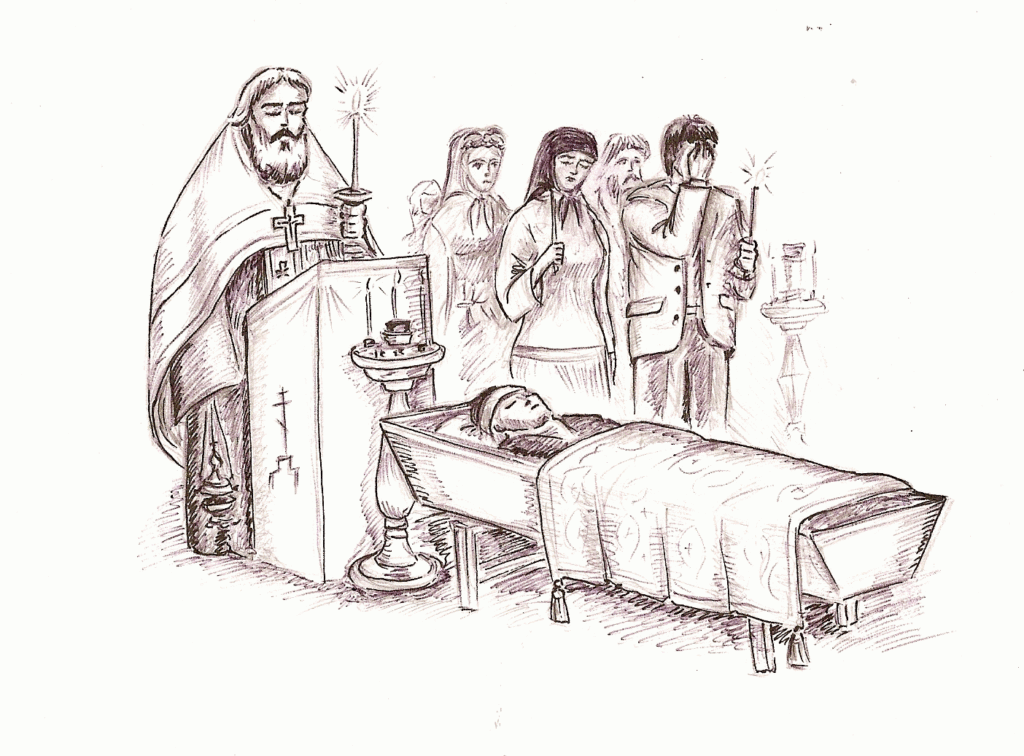You can listen to an audio podcast of this post at https://www.spreaker.com/user/youngfaithradio/esaias-vmon
Thus saith the Lord concerning the king of the Assyrians, He shall not enter into this city, nor cast a weapon against it, nor bring a shield against it, nor make a rampart round it. 34 But by the way by which he came, by it shall he return, and shall not enter into this city: thus saith the Lord. 35 I will protect this city to save it for my own sake, and for my servant David’s sake. 36 And the angel of the Lord went forth, and slew out of the camp of the Assyrians a hundred and eighty-five thousand: and they arose in the morning and found all these bodies dead. 37 And Sennacherim king of the Assyrians turned and departed, and dwelt in Nineve. 38 And while he was worshipping Nasarach his country’s god in the house, Adramelech and Sarasar his sons smote him with swords; and they escaped into Armenia: and Asordan his son reigned in his stead. 38:1 And it came to pass at that time, that Ezekias was sick even to death. And Esaias the prophet the son of Amos came to him, and said to him, Thus saith the Lord, Give orders concerning thy house: for thou shalt die, and not live. 2 And Ezekias turned his face to the wall, and prayed to the Lord, saying, 3 Remember, O Lord, how I have walked before thee in truth, with a true heart, and have done that which was pleasing in thy sight. And Ezekias wept bitterly. 4 And the word of the Lord came to Esaias, saying, Go, and say to Ezekias, 5 Thus saith the Lord, the God of David thy father, I have heard thy prayer, and seen thy tears: behold, I will add to thy time fifteen years. 6 And I will deliver thee and this city out of the hand of the king of the Assyrians: and I will defend this city.
Today’s reading is a portion of one of the historical narratives in the book of the Prophet Esaias. The end of chapter 37 records God’s miraculous destruction of the Assyrian army under Sennacherib during his siege of Jerusalem in 701 B.C. and his murder at the hands of his sons after he returned to Nineveh. The beginning of chapter 38 gives the account of the healing of King Hezekiah after his earnest prayer and the Lord’s granting him an extension of his life in this world by the space of fifteen years. II Chronicles, chapter 32, testifies also to these events.
Notice the content of the king’s prayer: He does not ask to be healed or to have his life extended, but rather weeps in repentance, and for the forgiveness of his sins, offers to the Lord the good works he has done during his reign. God hears his prayer and unexpectedly delivers him from imminent death and extends his earthly life.
The Blessed Jerome notices this, and he comments thus:
Hearing that he was about to die, Hezekiah prayed not that he be granted several more years of his life but that he be permitted to stand before the judgment of God, as he wished. For he knew that Solomon pleased God by not asking for a longer life. Preparing to journey to the Lord, therefore, Hezekiah chronicled his works, how he had walked before the Lord in truth and in perfection of heart. Happy is the conscience that remembers good works at a time of affliction: “Blessed are the pure in heart, for they shall see God…”. – Commentary on Isaiah
At the end of each day, we say our night prayers, in which the theme of preparation for sleep repeatedly leads to the theme of preparation for the body’s sleep in the grave, the departure of the soul, and standing before God’s judgment. A most salutary practice, before or after night prayer, is to examine our day, thinking over both our bad and good thoughts, words, and deeds, repenting of the former and offering God thanks for the latter, in that His grace alone enables every good deed. We recall that at the tollhouses, the good angels will take from the treasury of our good deeds the needed compensation to offset any sins for which we have not repented, or at least not repented thoroughly enough. As St. Peter writes, charity covers a multitude of sins (I Peter 4:8, “And above all things have fervent charity among yourselves: for charity shall cover the multitude of sins.”). Let us resolve at the beginning of each day to do works of love towards God and man, and so cover the multitude of our sins, inciting the Giver of gifts to grant us many more years for repentance and a happy Christian death, full of hope in His mercy.

